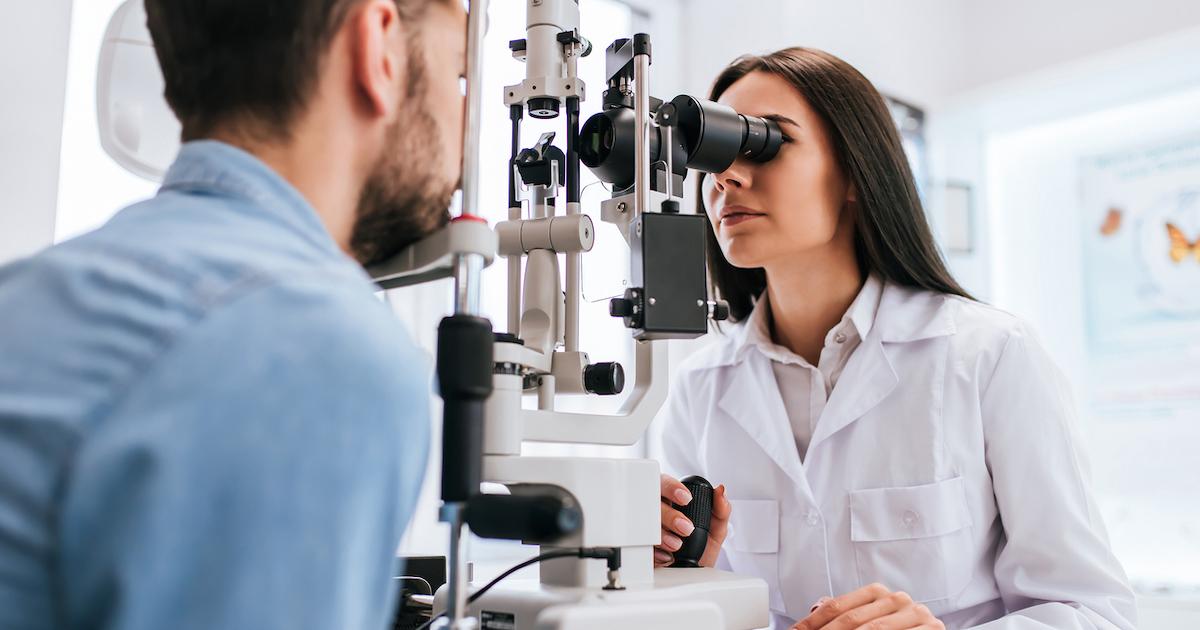Teen Goes Blind From Steady Diet of Pringles, Fries, and Processed Meat
Updated April 27 2020, 4:33 p.m. ET

Many parents have had to deal with the challenges of raising a picky eater. Lots of kids are very particular about what they will or won't eat, to the point that their parents are just happy when they get them to eat anything at all, regardless of how nutritious the meal might be. However, as is the case for the subject of a recently published medical study, the consequences of a junk food diet can be alarming.
The study, published in the Annals of Internal Medicine, details the complications attributed to a 17-year-old U.K. boy's extremely restrictive eating habits. The teen had been subsisting on a diet of processed ham and sausage, white bread, french fries, and Pringles. The vitamin deficiencies resulting from his junk food diet caused him to develop a condition called nutritional optic neuropathy.

The damage to his optic nerve resulted in permanent vision loss, and that was only the beginning of the negative health effects his junk food diet brought on. When he first came to the attention of the researchers who published the study, the boy was 14 years old and complaining of fatigue. The doctors prescribed vitamin B12 shots to address his nutritional deficits and encouraged changes in his diet.
However, issues with certain food textures made it difficult for the boy to adopt the dietary changes his doctors recommended. Since he was very young, the subject found it difficult to tolerate most foods. Unfortunately, it took a while for physicians to link the various health problems to his eating habits.

By the time doctors determined the boy's diet was the root of his healthy problems, he had suffered hearing loss in addition to the optic neuropathy and bone deficiencies. The condition of nutritional optic neuropathy is normally quite rare in developed countries and is most commonly seen in obese patients who have undergone bariatric surgery and people who suffer from chronic alcohol abuse.
A 2018 case study by the University of Iowa involved the latter cause presenting in a 28-year-old man who had been drinking a half gallon or more of vodka every day, though he had been sober six months at the time he was seen. During the peak of his alcoholism, he said he would often eat nothing or just one meal a day, and got the majority of his calories from vodka.

In his case, getting sober, dietary improvements, and supplements of folic acid and B12 helped treat his condition, but despite reporting some improvement to his vision, the doctors also found permanent damage to the optic nerve in his case. Both this case and the new one in the U.K. suggest there is a danger in physicians overlooking malnutrition in patients who have normal BMIs.
Just because someone seems to be a healthy weight or even overweight doesn't necessarily mean they are getting the vitamins and proteins their body needs to maintain healthy function. It's possible that in the case of the Bristol teen in the most recent study, his complete blindness could have been prevented had his diet been identified sooner as the cause of his symptoms.
It's clear what you eat is just as important to your overall health as how much you eat and how often you exercise. Hopefully, these findings will lead patients and doctors to have more frequent and open discussions of diet during check-ups in the future.